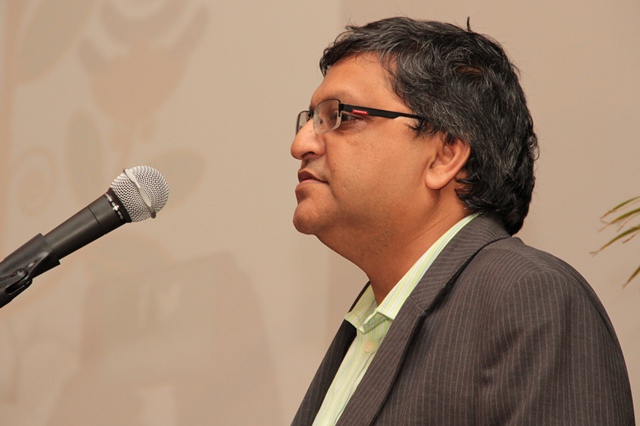The first reaction in the face of adversity is self-preservation. This is an instinctive natural human reaction.
The second is sympathy and then we ask the question: “what can I do to help?” And so it was that South Africans in the aftermath of the tragic xenophobic attacks opened their hearts, wallets and their kitchens to assist refugees. This doesn’t lessen our shame, but it does show that when South Africans are confronted with a situation, we react with much more than empathy. I saw Standard Bank’s stately full-page eloquent response and plea for South Africans to be anti-xenophobic. Good show. But an advertisement? One bank, FNB on the other hand asks: “How can we help you” all the time, don’t they?
The recent earthquake that rocked Nepal has galvanised the world into support mode with the irrepressible Gift of the Givers leading Africa’s response to help this beautiful nation. “How can I help”, I asked myself? The Gift of the Givers seems to be an obvious choice for a donation. Is this enough?
I then came across a Facebook post by career healthcare activist and great friend, optometrist Kesi Naidoo, who makes a lifestyle of providing contextual eye-care to the indigent all over the world. In doing so doing, he has helped improve the vision of hundreds of thousands of poor folk. He reposted the fact that internet phone company Viber had turned off its “Viber Out” billing on its Nepalese network. So I checked and yes, Nepal users can now call any destination for free as a humanitarian gesture.
Hah! A simple productive, proactive, functional, meaningful gesture that will really help everybody – the victims, families, rescuers, government and the journalists.
There have been a few other important developments as volunteers try to add structure to the understandable chaos in Nepal. Some volunteer ham radio operators from India travelled to the region to relay messages from areas whose communications infrastructure is broken or overloaded. Ham radio, also called amateur radio, is old technology which communicates over a specific radio frequency. It is used in disaster situations because it operates well off the power grid and transceivers can be set up and powered by generators just about anywhere.
The International Red Cross also set up a website on which family members outside the disaster area can report people for whom they are still searching. People who are safe in Nepal can report their safety on this site as well.
Facebook also relaunched its Safety Check feature, which asks people who are in an affected area to confirm that they are safe in the event of a natural disaster so that friends and family around the world need not worry.
“How can we help you?” keeps ringing in my head. So let’s help FNB and all banks. If I am a refugee, probably the only thing I have – if anything at all – is the money in my back pocket or money I have hidden in some spot because FICA won’t let me open an account. Can we not help them to bank this money? They may then be able to wire home some of this to their loved ones?
Now what about the telcos, who I remind you, are Telkom, MTN, Neotel, Vodacom and CellC? If I were the telcos, I will set a day or three – perhaps an entire weekend – where all outbound calls are free to countries in Africa, and a few Asian countries. This is so our foreign friends can call home and reassure their family or someone in their neighbourhood that they are okay or sadly inform them of any loses. I cannot begin to imagine the anguish of the families of the economic refugees.
Even in good times these divided families hardly have any contact with their loved ones in South Africa.
This will be a wondrous gesture. Further, given that companies like MTN are under pressure as South African brands, this exercise will go a long way to mitigate reputational damage and even help rebuild brand South Africa.
I am happy to transfer some of my airtime to such a cause if the economics don’t allow for such humanitarian gestures. However if Viber could do it, surely our companies can as well? Some telcos even have M-PESA (or an equivalent) which is an innovative African money transfer system. Can they not allow our people to also deposit the money and transfer back to their families? I tweeted the following to @Viber: “Bless You. This is a contextual, meaningful response.” Maybe you can tweet something similar to Viber? Your second tweet can be to your bank. They keep asking, “How can we help you?” I think these suggestions have merit. Don’t you?
– Colin Thakur is the Director of the iNeSi e-Skills CoLab at the Durban University of Technology. He is a digital activist keen on upgrading the e-skills of the nation to enhance the quality of life.
* Views and opinions expressed here are solely those of the author and do not necessarily reflect those of the Durban University of Technology.
* This article appeared in the Dolphin Coast Mail and East Coast Mail.


